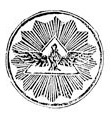Содержание
Preface and Acknowledgments
List of Abbrevations
Note on Language, Names, and Transliterations
Introduction
The Person
Cult, Myth, Charisma, and Rituals
Ukrainian Nationalism and Integral Nationalism
The OUN and Fascism
Fascism, Nationalism, and the Radical Right
Sacralization of Politicsand the Heroization-Demonization Dichotomy
Memory, Identity, Symbol, and Denial
Genocide, Mass Violence, and the Complexity of the Holocaust
Documents, Interpretations and Manipulations
Literature
Objectives and Limitations
Chapter 1:Heterogeneity, Modernity, and the Turn to the Right
“Longue Durée” Perspective andthe Heterogeneity of Ukrainian History
The Beginnings of Ukrainian “Heroic Modernity”
The Lost Struggle for Ukrainian Statehood
The Lack of a Ukrainian Stateand the Polish-Ukrainian Conflict
The OUN: Racism, Fascism, Revolution, Violence,and the Struggle for a Ukrainian State
Conclusion
Chapter 2:Formative Years
Family, Education, Appearance,and Political Commitment
Career in the OUN
Worldview
Conclusion
Chapter 3:Pieracki’s Assassination and the Warsaw and Lviv Trials
Pieracki’s Assassination
The Ideological Dimension of Pieracki’s Assassination
The First Trial of OUN Members in Warsaw
The Second OUN Trial (in Lviv)
Bandera and the Aftermath of the Trials
Bandera in Polish Prisons
Conclusion
Chapter 4:The “Ukrainian National Revolution”:Mass Violence and Political Disaster
The Beginning of the Second World War
The Second Great Congressof the Ukrainian Nationalists (in Cracow)
Practical Preparations for the “Ukrainian National Revolution”
The “Ukrainian National Revolution”
Result of the “Ukrainian National Revolution”
Bandera’s Agency and Responsibility
Conclusion
Chapter 5:Resistance, Collaboration, and Genocidal Aspirations
The OUN-M and the Question of Eastern Ukraine
Disagreement
Ukraine without Bandera
The Ukrainian Police and the OUN-B
The OUN-B in 1942
The UPA—Mass Violence and “Democratization”
Bandera and Banderites
Resistance, Further Collaboration,and the Reactivation of Bandera
Conclusion
Chapter 6:Third World War and the Globalizationof Ukrainian Nationalism
The Subordination of the Greek Catholic Church
The Conflict between the OUN-UPA and the Soviet Authorities
Operation Rollback
Displaced Persons
Conclusion
Chapter 7:The Providnyk in Exile
The Opponents and Victims of Nazi Germany
Bandera and Conflicts in the Organization
Bandera and Western Intelligence Services
Bandera’s Private Life
Bandera’s Worldview after the Second World War
Stashyns’kyi, Oberländer, Lippolz,and the Assassination of Bandera
Conclusion
Chapter 8:Bandera and Soviet Propaganda
German-Ukrainian Nationalists
Bourgeois Nationalists
The Reaction of the Nationalist Underground to Soviet Propaganda
Halan—Soviet Martyr and Heroic Intellectual
Soviet Heroes and Monuments to the Victims of the OUN-UPA
Bandera in the Late Soviet Discourse
Conclusion
Chapter 9:The Revival of the Cult
Bandera’s Death and the Funeral
Anticommunist Celebrations, Demonstrations, and Rituals
The First Bandera Museum
Historians and the Bandera Cult
Conclusion
Chapter 10:Return to Ukraine
Double Propaganda
The First Bandera Monument in Ukraine
The Second Turn to the Right
The Bandera Cult in Historiography
Bandera’s Museums
Bandera Streets, Plaques and Monuments
Bandera in the Context of other Leader Cults
Conclusion
The Person, the Movement, and the Cult
Fascism
The Afterlife
Inability to Mourn, Lack of Empathy, Sacralization, and Trauma
Glossary
Bibliography

